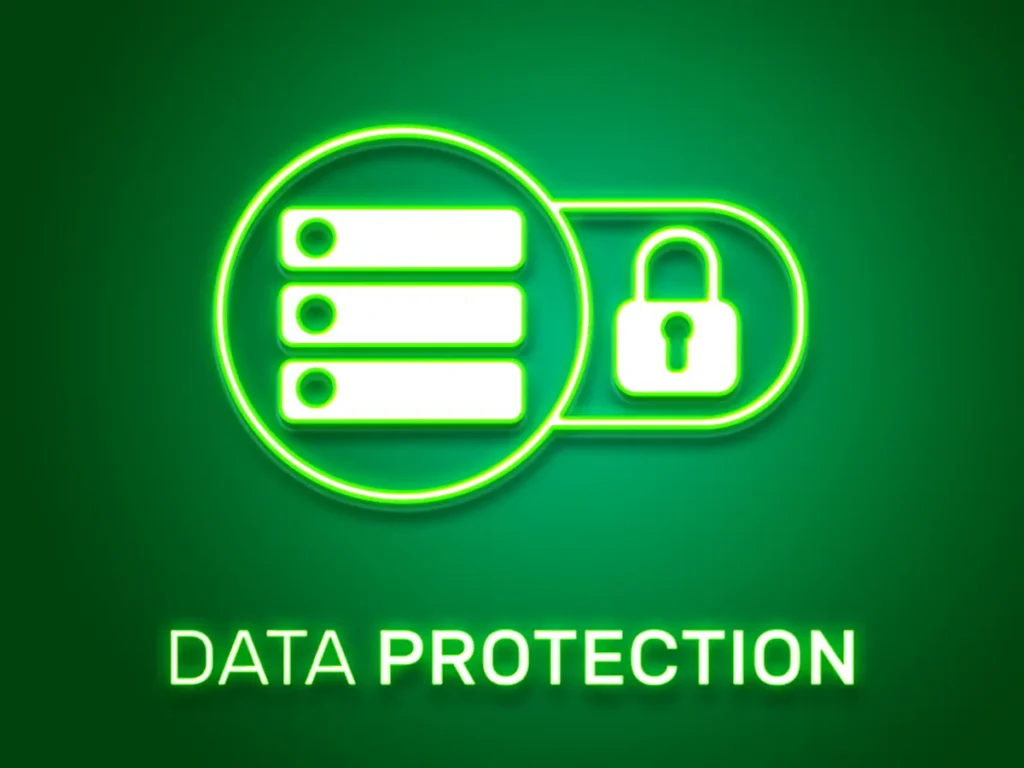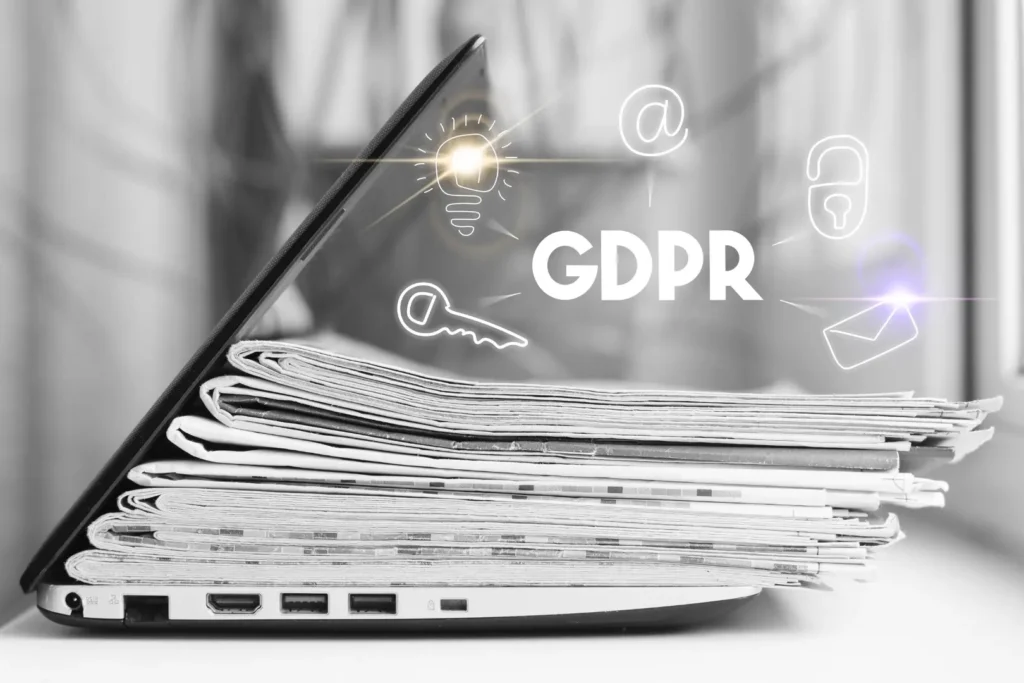Data Protection Law in Kenya: A Guide for Businesses and Consumers

Learn how the Data Protection Law in Kenya protects your personal information and what businesses must do to stay compliant.
Top 12 GDPR requirements you must know in 2024

Top 12 GDPR requirements you must know in 2024 Towards the early 2000s, the European Union realised the need to regulate data protection and security. Although some other factors were involved, the fast rise of the internet became the final push for a data protection regulation. This brought about the implementation of the GDPR. On May 25, 2018, the General Data Protection Regulation (GDPR) came into existence. The main goal of the GDPR is to give data subjects (owners of data) more control and protection over how their data is collected, processed, used, and stored by organisations. An important point to note is that the GDPR applies to every organisation that operates in the EU or handles data belonging to an EU citizen, wherever they are. Now, there are several GDPR requirements for organisations, and this article provides a summary of them. Lawful, fair, and transparent processing Shouldn’t be hard, right? Yes, it sounds straightforward, but according to IT Governance UK, it’s the most violated GDPR requirement. Article 5 of the GDPR mandates every organisation handling data to have a legal reason to do so. Meaning, you can’t collect, process, and store personal information for any random purpose. To know if your processing is lawful, check it against the GDPR’s lawful basis for processing. For data processing transparency, you should communicate clearly your ways of processing, in addition to the lawful reasons, to the data subjects. For this, you should make privacy notices and ensure data owners have easy access to it. Purpose limitation This requirement addresses another issue. With this, every organisation can process data for the lawful purpose clearly stated ONLY. This means that you cannot process collected data for reasons beyond the initial purpose. Data minimisation Isn’t it better to collect all the data you can get from each subject in one go? While it sounds reasonable, the GDPR kicks against it. You can only collect data necessary for the stated purpose. For instance, in research for the average height of males, the HIV/AIDS status of the subject isn’t needed. As such, you shouldn’t collect it. Accuracy No organisation should keep or process incorrect data. As such, data accuracy under the GDPR is mandated and effective immediately upon discovery. Storage limitation There‘s a limit to how long an organisation’s keep data after processing. Of course, there are unique timeframes for each type of data. In summary, data retention under the GDPR cannot be longer than necessary. Integrity and confidentiality The GDPR states that organisations must implement technical measures to ensure data security. Such methods include encryption, data masking, etc. Accountability Yes, the GDPR requires absolute compliance by organizations. And so they have to show proof of their compliance. Struggling with GDPR compliance? Contact Johan’s Consult now for a free 1-1 consultation.Data Subject Rights Since the goal of the data protection regulation is to give subjects more control, it makes sense that there are GDPR rights for individuals. The right to be informed Entities (organisations) must tell individuals what data is collected, how it’ll be processed, and the purpose. And these must be communicated clearly in plain language. Right to rectification Should the data subject discover any inaccuracies in its data, he/she can request that the organisation correct it. Now, the organisation has a month to rectify the inaccuracy. But there are exceptions. The right to access An individual can demand a copy of his/her personal data. Once the individual submits DSARS (data subjects access requests), the organisation has one month to oblige the request. Right to erasure Under certain circumstances, individuals can ask organisations to delete their data permanently. For example, cases of unlawful processing and when the data is no longer necessary. Right to data portability Individuals can obtain and reuse their personal data for personal reasons. This right is for data given to the organisation through contract or consent. The right to object When organisations want to process data for lawful reasons, they give subjects the right to object to the processing. Unless they have valid reasons not to, organisations must stop processing when individuals exercise this right. Want to learn how to write a GDPR-compliant consent statement? Click here. Privacy by design This concept has been around for awhile. Although it used to be a best practice for data protection, the GDPR mandates it for every organisation. This requirement mandates organisations to implement technical and organisational measures to ensure data protection and Use security measures to implement the GDPR principles. To help you track your compliance journey, make use of this checklist. Data transfers In the event that an organisation needs to transfer data between borders, the GDPR requires additional steps. However, if you’re moving data within the EU, you’re exempt from extra requirements. For data transfers with third-party countries—outside the EU—Article 46 outlines protection steps. Basically, this situation’ll need an SCC (standard contractual clauses). An SCC is used for data transfers between an EU country and a third-party country. Data protection impact assessment A DPIA (Data Protection Impact Assessment) helps organisations identify and reduce risks associated with data processing. It’s required in situations where sensitive information or data of vulnerable persons’ is processed. Article 35 of the GDPR speaks on the concept of DPIA and states that it is required where data processing “is likely to result in a high risk to rights and freedom of natural persons.”. The regulation does not explicitly define high risk, but it generally refers to the use of: systematic and extensive profiling; Special category or criminal offence data on a large scale; and Systematic monitoringof publicly accessible places on a large scale For a better grip on GDPR compliance, you can use GDPR compliance software. Data protection officer A DPO (Data Protection Officer) is an individual trained in the technicalities of data protection who helps organisations with data protection in compliance with data protection regulations. Article 39 explains the roles of a data protection officer (DPO). highlights include: advising and training staff on their data protection responsibilities; Monitoring the organisation’s data protection policies and procedures; Overseeing
7 GDPR Compliance Software You Need For 2025

Facts first, Data is important. In fact, it’s a necessary part of every organisation, large or small. In today’s world, almost every nation and industry has established regulations for data protection and security. To prevent landing on the wrong side of such laws, you need to ensure 100% compliance.In this blog, you can expect a brief overview of the GDPR and top GDPR compliance software you’ll definitely need in 2025. Quick Recap: What’s the GDPR? The General Data Protection Regulation came into existence in 2018 and has since earned its reputation. It is by far the most respected data protection regulation in the world. As a matter of fact, it served as the template for most of the data protection laws around the world. For instance, the NDPA holds several similarities with the GDPR so much that the major difference between the two is the scope of application. The General Data Protection Regulation (GDPR) mandates organisations that fall under the following categories to have absolute compliance. operating in the EU. handling data of an EU citizen (no matter where it’s located) has a branch in the EU Does the GDPR apply to your organization? Find out at Johans Consults. The 7 GDPR principles At the core of the GDPR, there are 7 principles every company needs to follow. They are; Integrity and confidentiality You must employ every means necessary to protect data from unauthorised access, processing, damage, or accidental loss. So, you need a reliable data security system. Lawfulness, Fairness, and Transparency You cannot collect data for just any reason. So, whatever purpose you have must be lawful. Also, the data collection process must be transparent and legal. For instance, you cannot buy personal information from a third party. You need to get the data directly from the data subject itself. Also, you MUST tell the data owner the reason for the collection. Note: This reason must be stated clearly. Know how to write a GDPR consent statement. Purpose Limitation. As an organisation, you can’t just collect data for one reason and process it for several others. Once you’ve used the data for the purposes stated beforehand, you cannot make use of it. again. Although, if the need arises, you should inform the data subjects and seek their consent again. Data Minimisation This principle states that you cannot keep every single piece of information you collect. For example, when you collect data through the filling of forms, you’re mandated to keep the ones important to the cause only. The Ultimate GDPR Compliance Checklist for you Accuracy Your organisation must not store incorrect information. Every inaccuracy must be corrected with immediate effect. Accountability The GDPR holds every organisation accountable for what they do with users’ data and its safety. Also, you need to prove your compliance with the data protection regulation through proper records. Storage Limitation You can only keep data for a limited period of time. The duration depends on the type of data and its sensitivity. For example, you can store financial data for up to 6 years, but health-related data is more limited. Learn about the Top 12 GDPR Requirements. So, What is GDPR Compliance Software? Now that you understand the basics of the GDPR, you must know that compliance isn’t an easy task. Often times, a lot of organisations don’t even know where to begin. Neither do they know how to achieve maximum compliance. That’s where GDPR compliance software comes in. These softwares are the several tools that assist businesses towards GDPR compliance. Today, these tools come with different functionalities. Some simply record compliance activity, while the advanced others provide audits, reports on data breaches, consent management, and find weaknesses in your compliance strategy using gap analysis. To narrow down your search, we’ve compiled the top GDPR compliance software for you. Microsoft Purview Compliance Manager This is great GDPR compliance software made for Microsoft365 users. To use it, you’ll need An Office 365 E5 license. The features include; Ability to conduct several assessments Ability to identify and protect sensitive data Protects against unauthorised access Implements data minimisation and storage limitations Protects against accidental disclosure Classifies data based on the level of sensitivity Deletes data after a specified period of time Netwrix Netwrix supports organisations with GDPR compliance through its Auditor and related tools. Here are some of its remarkable features. Data Discovery and Classification: Netwrix finds, classifies, and protects sensitive personal data in accordance with the GDPR. Also, it scans on-premises and cloud-based systems to pinpoint where personal data is stored and ensures that there are controls to secure it. Security of Processing: Netwrix provides a clear picture of how data is accessed and shared. By monitoring user behaviour and detecting unauthorised access, it ensures secure personal data processing. Breach Notification: Netwrix is GDPR compliance software with data breach alerts. The software aids in quick detection of data breaches by reporting them. Audit and Reporting: Netwrix Auditor provides detailed auditing and reporting capabilities. This includes logs of data access, data modification, and user activities, which are crucial for demonstrating accountability. Not sure if you’re compliant with the GDPR? Contact us at Johans Consults for a detailed assessment. TrustArc This here is complete with all GDPR-oriented solutions to help every business plan, implement and even update their GDPR compliance practices. It’s main functions are: Reporting to regulator Monitoring compliance And recording processed activities. Snow software Snow Software is a GDPR risk assessment solution available on cloud, mobile, or on-premise. Below are some of its remarkable features. GDPR Risk Assessment: Snow Software identifies applications and devices that handle personal data and notes those with weak protections, e.g., encryption or anti-virus. Continuous Monitoring and Reporting: Snow’s solution keeps constant analysis of applications that process personal data and generates reports to help mitigate risks. Internal Threat Mitigation: The software focuses on reducing internal threats, such as corrupt employee actions and unsecure applications. To do so, the software flags risky devices and users. Comprehensive Asset Management: Snow also offers broad IT asset management features like license compliance tracking and software usage meters. So, you
GDPR Compliance: All You Need to Know To Get Started

The digital age has made the world into a village. Conducting business across borders is now possible, and data transfer is done at lightning speed. Sure, this came with its own consequences. Data is threatened now more than ever with unauthorised access, mishandling, loss, and cyberattacks. Pushing organisations to put in place data protection systems. This is where GDPR compliance steps in. We will be looking at what GDPR is, who it applies to, the principles guiding it, and how it compares to the Nigerian Data Protection Regulation. What is GDPR? GDPR stands for General Data Protection Regulation. It was established to govern the process of data protection in the European Union (EU) and European Economic Area (EEA) on May 25, 2018. It dictates how data is collected, processed, and used by organisations and individuals. The GDPR is regarded as the most comprehensive data protection regulation. Due to this, compliance is a top priority among data handlers. Who Does The GDPR Apply To? A common misconception is that GDPR holds power only in the EU. True, the GDPR protects the data of EU citizens. According to Article 3 of the GDPR, it applies to entities processing the data of EU citizens. Regardless of their geographical location. For instance, any business in Nigeria processing customers’ data has to be GDPR compliant once an EU citizen is in the mix. Basic Terminologies in The GDPR Decoding the GDPR and all it stands for can be difficult, especially to a beginner. Without understanding the terminologies used, it’ll be even more confusing. To assist, here is a breakdown of the common terminologies in the GDPR. Data Controller A data controller is an entity (organisation or individual) that collects data for its own use. This entity determines the purpose for which data is collected and how it is processed. A controller may work alone or with others to process data. Data Processor This is usually a third-party entity that processes the data provided by the controller. Although the processor has access to data, it doesn’t control the purpose. Personal Data Personal data is simply any information that can be used to identify a real person. For example, name, address, national identification number, IP address, etc. Personal data covers a broad range of data. It can be basic, like age, or extremely sensitive, e.g., a social security number. Data Subject A data subject is the person whose data is being processed. The data subjects of businesses are their clients. What Are The 7 GDPR Principles? The GDPR has seven principles guiding data controllers and processors on how to protect data. This is also called the principles of data protection, and they are listed below. Lawfulness, Fairness and transparency Data controllers must process data for lawful reasons. Such reasons must be made clear to the data subject beforehand. Purpose limitation Personal data can only be processed for the purposes clearly stated beforehand. It cannot be used for any other purpose, contradicting the initial one. Data Minimisation The personal data collected must be relevant and limited only to the stated purpose. This is to avoid causing harm to subjects. Accuracy This means that all personal data must be accurate and up-to-date. Also, inaccurate data must be corrected or destroyed immediately. Storage Limitation Personal data collected should not be stored for longer than necessary. Once the purpose of the processing is over, the data should be deleted. Integrity and Confidentiality Personal data must be processed with appropriate security against accidental loss, destruction, or damage. Accountability. This principle states that data controllers must follow the GDPR. And also be able to prove their compliance. Compliance can be proven through regular data audits, data processing records, and appointing a data protection officer. There is one more key GDPR requirement, which is: Right To Be Forgotten. Under article 17 of the UK GDPR, data subjects have a right to have their data deleted by data controllers after a period of time in the following events: When the personal data is no longer needed for the stated purposes. When the data subject revokes consent to the processing and there is no lawful reason to continue. Need to get consent? Learn how to write a GDPR consent statement. Where the owner objects to the processing and it cannot be overridden lawfully. Where data is used for direct marketing or a minor is involved. Learn about more GDPR requirements and Data Protection Impact Assessments, inclusive. What is GDPR compliance? GDPR compliance is when an organisation meets all the requirements for protecting data stated in the GDPR. GDPR compliance is required when data controllers and processors are handling data belonging to EU citizens. Why is GDPR compliance important? Compliance with GDPR is important to avoid hefty fines and penalties. Organisations that fail to meet the GDPR standards could be fined up to 4% of their annual global turnover or $20 million, whichever is higher. For non-compliant businesses, the fine is not all they have to worry about. Data loss is the greater penalty. Customer trust will be compromised, and the company’s image will be damaged. Now that you know the consequences of non-compliance, let’s look at how to be GDPR-compliant. How to Ensure GDPR Compliance To become GDPR compliant, organisations need to do the following: Understand the GDPR principles and the rights of data subjects. Document data processing activities. Ensure they have the consent of the data subject(s). A GDPR compliance checklist can help you track your progress, or better yet, seek expert advice with Johan Consults. GDPR Compliance Checklist You can use the checklist below to know how compliant your organisation is with the GDPR. Know what data you are processing and who has access to it. Have a lawful basis for processing data. Make your data processing activities transparent. Implement adequate data security measures like encryption and pseudonymization Develop a data breach management system. Assign a data protection officer for GDPR compliance. Ensure the privacy rights of data subjects by making it easy for them to: Request and get all their data. Correct or update inaccurate data Revoke their consent to data processing. Request the deletion of information. For an easier job, you should try out
What to Know About Data Protection and Data Protection Principles

Understand data protection and its importance, know the best practices and regulations including top trends in the world of data protection
ALL YOU NEED TO KNOW ABOUT CYBER SECURITY AND GDPR IN NIGERIA

Most people simply don’t care enough to take proactive measures to protect themselves, their identity and their data when online or using their devices, perhaps they think it will not happen to them. Well, the truth is Cyber attacks are real and can be damaging on the long run, hence one needs to curb it completely. New laws are taking effect across the globe to regulate the collection, use, retention, disclosure and disposal of a person, information. At the same time, the rate of cyber attacks, data breaches and, unauthorized use of personal data is growing exponentially. It is more important than ever particularly for those organizations handling financial data, health information and other personally identifiable information to understand the rights and obligations of individuals and organizations with respect to personal information. The Emerging data privacy regulatory space GDPR The European Union enforcement of the Global Data Protection Regulatory Space (GDPR) commenced on 25 May 2018, and it came with sweeping changes in the privacy and data security policies for the vast majority of companies operating, not only in the EU, but across the globe. The GDPR applies to all companies processing the personal data of subjects not only residing in the EU, but inclusive Africa. This generally governs how companies manage and share such data. Furthermore, there are provisions of the GDPR that will be important for all companies to take note of and that includes; The requirement for explicit and informed consent for collecting personal and mechanisms to withdraw such consent. Breach notifications, the right to access all data that a company has collected and the right to be forgotten through the erasure and cessation of dissemination of data. So What are the penalties for breaching the GDPR Penalties for breach of the GDPR are steep up to 4 per cent of annual global turnover or €20M, which is greater. In recent reports, French data privacy regulator, The National Data Protection Commission, slapped Google with a $57 Million fine, the offence has to do with the company’s failure to comply with the GDPR, in other words, you can call it a fine for lack of transparency, inadequate information and lack of valid consent regarding the ads personalization. Cyber crimes and Data Breachment in Africa – What can be done? Arguably, Nigeria is seen as the giant of Africa and such bold statement should be reflected in the country’s cyber security network, the process of adopting innovations can be lengthy and require full commitment and effort from all security network. In Nigeria and Africa as a whole, the tech industry has grown and more technological innovations are expected to come, as young and smart minds are delving into the tech industry, the future is bright but it can be brighter. In view of this, companies, startups, corporate business organizations are further encouraged to establish internal policies and procedures to ensure compliance. Business policies may include top-level information security and privacy from the top-level officers of a company, monitoring, breach reporting, risk management program and acceptable use policy. Technical policies may include encryption of password, authentication protocols, disaster recover intention detection, physical security, patching, etc. Artificial Intelligence(AI) and specifically Machine Language(ML) techniques are now widely employed to enable computers to learn and adapt to new input. Such AI technology can be used in cyber security systems to provide an automated process for the identification of new threats and implementation of technology controls and protection. Furthermore, Bigger companies should shoulder the responsibility of protecting their smaller counterparts in the tech field, this can be successfully implemented when companies support data privacy as a “human right” where there are rights to protect the legitimacy and ownership to private data. I believe everyone should own the right to his/her private information and exercise the right to make it available to the public or not. Microsoft CEO, Satya Nadella speaks out about data privacy and he voiced his support for data privacy as part of a human right. This focused on three major elements; Privacy, Cybersecurity and Observing the AI ethics. He also cited EU’s General Data Protection Regulation as a model of legislation. Nigeria as a country should urge companies to see common citizens and small businesses as the most vulnerable to cyber threats and task the Big companies to use their power in protecting them. In conclusion, Recognition of the new and evolving international privacy and security regulations is a requirement, especially in view of the threat of increasing liability and risk with statutory penalties and class action lawsuits. Implementing a compliance program with a set of best practices for privacy and data security will surely help mitigate these risks, but it is a continuing process, especially as technologies in Africa face new hurdles when rolling out new systems and technologies. Photo source – Unsplash


